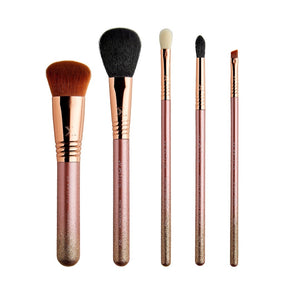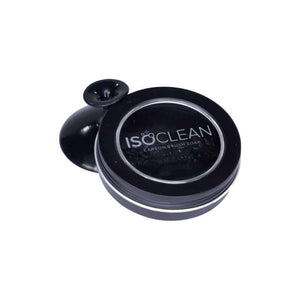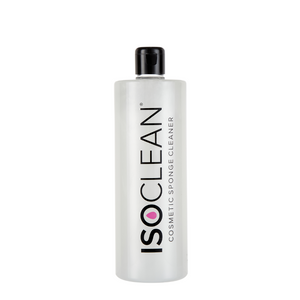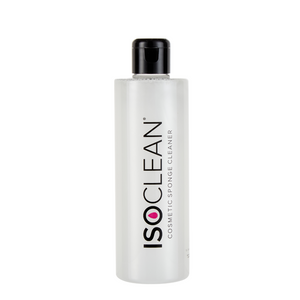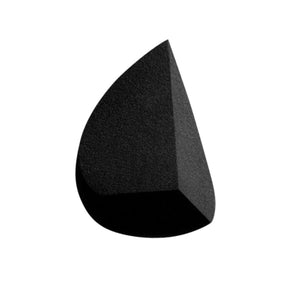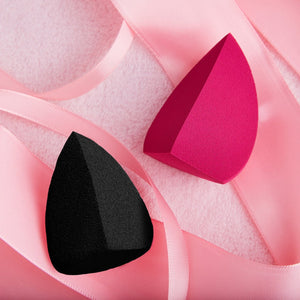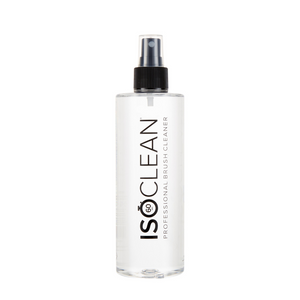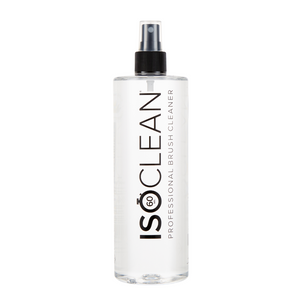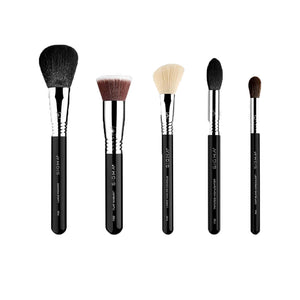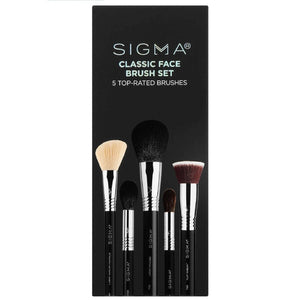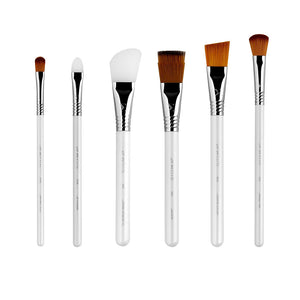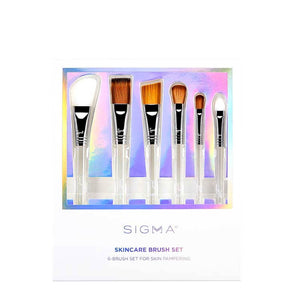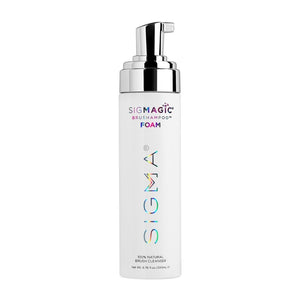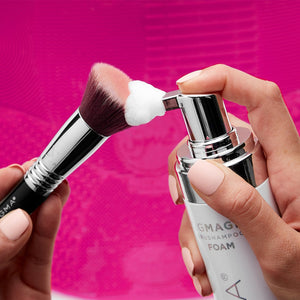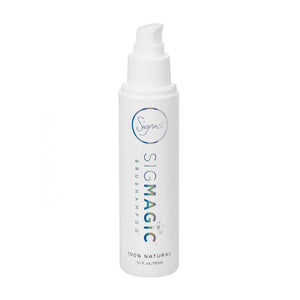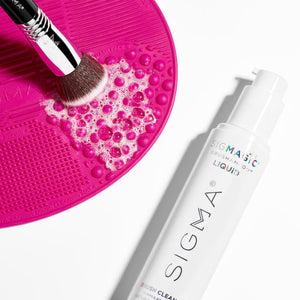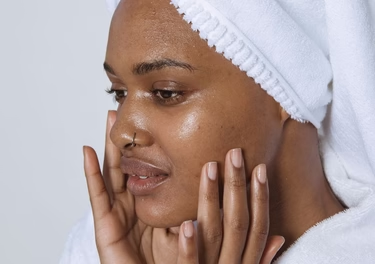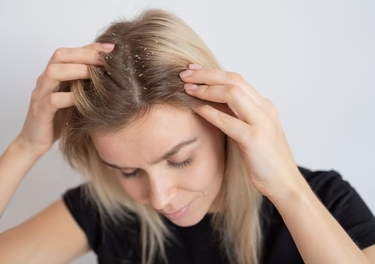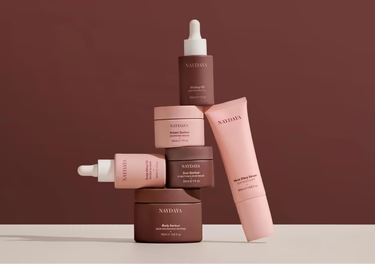How To Clean Makeup Brushes Properly

Struggling with mystery breakouts? Your makeup brushes could actually be to blame. Recent research has shown that a huge 40% of makeup users only clean their makeup brushes once every two weeks, whilst 20% only clean them once every three months.* Even more horrifying? Those dirty makeup brushes could actually be harbouring more bacteria than the average toilet seat. With lots of mixed advice on when and how to clean makeup brushes properly, we'll be asking our resident makeup artist, Rachael, to clear up the confusion by answering some of your frequently asked questions.
Whether you wear makeup daily, or just for those special occasions, it's super important to keep your makeup brushes and tools clean - and sanitised. But why is it so important, and exactly what happens if you don't clean your makeup brushes often enough? Let's talk about it in today's post.

What Happens If You Don't Clean Your Makeup Brushes?
"Dirty makeup brushes are a real breeding ground for bacteria, and that spells disaster for your skin." Rachael says, "if your brushes aren't regularly and thoroughly cleaned, you're transferring the bacteria back and forth between your brushes, your makeup itself, and your skin. This then leads to breakouts and can even cause skin infections and eye infections. Not to mention that dirty brushes will really hinder your makeup application and leave you with a less than a flawless finish."
Should You Clean Your Makeup Brushes Every Day?
"This really depends on what kind of brush or tool you're using, and what type of product you're using, too." Rachael says. "For example, cosmetic sponges or foundation brushes that are used with liquid or cream products should be washed daily. The same applies for liquid or cream eyeshadow brushes, and lipstick brushes. When using these types of formulas, your brushes are more prone to harbouring oil, dead skin cells, and bacteria."
Rachael went on to explain that she cleans her own makeup sponges and foundation brush daily, and her powder bronzer, blush, and eyeshadow brushes once to twice weekly.
Does Cleaning Makeup Brushes Ruin Them?
"If you clean your brushes carefully and with products intended for them, then no, not at all, in fact, some brush cleaners can actually help your brushes last longer!" Rachael says. "I've used my favourite foundation buffing brush now for 12 years and the bristles are still as good as new!"
Rachael says that the key is to use gentle formulas that both cleanse and condition your brush bristles, and to use a good cleaning technique. "You want to make sure you don't oversaturate your bristles with water and your brush cleaner, she says, "and also ensure that you don't let water get into the ferrule (the part that seals your bristles onto the brush handle - usually made from metal) as this can lead to the breakdown of the glue that holds the bristles in place."
Rachael went on to explain that brushes like Sigma Beauty makeup brushes feature interlocking technology with double-threaded engineering - an innovative screwing system that firmly attaches the ferrule to the brush handle, creating a tight seal that makes the brushes waterproof.
Can You Clean Makeup Brushes With Shampoo?
"Many people clean their makeup brushes with baby shampoo or even a mild dish soap, like Fairy Liquid. And whilst this isn't going to hurt your brushes in a pinch and will clean them, it won't actually sanitise them. So, any leftover bacteria lurking in the bristles will make its way into your makeup products and onto your face." Rachael says. "It's always best to use a specialist makeup brush cleaner. If you like shampoo-like formulas that are used with water and tend to foam, you'll like ISOCLEAN's Carbon Soap. The advanced brush cleaning soap helps eliminate dirt and bacteria from your makeup brushes using a unique formula that includes activated carbon to absorb the build-up found in your makeup brushes. If you're looking for a great cleaner for your cosmetic sponges, then you can't go wrong with ISOCLEAN's Cosmetic Sponge Cleaner - it even comes with an eco refill so you can top your bottle up for less when you run out."
How To Clean Dirty Makeup Brushes
Rachael explains that there are typically two ways to clean your dirty makeup brushes: with a quick-change spot cleaner, or with a deep clean brush cleanser.
Spot Cleaning
"This is great for quickly cleaning and sanitising your brushes day to day." Rachael says. "Simply take a quick-dry brush cleaner, like ISOCLEAN Makeup Brush Cleaner With Spray Top and spritz the solution directly onto your brush bristles before gently swirling your brush onto a clean piece of paper towel. Repeat the process until your brush is clean. Alternatively, you can spritz the mist onto your paper towel before swirling your brush in the solution until your bristles are clean."
Deep Cleaning
"I recommend deep cleaning your regular makeup brushes a least once a week, and daily for foundation brushes and sponges." Rachael says. "To do this, wet your brush bristles with water before swirling them directly onto the soap (you can pop a bit onto your hand or use a specialist makeup cleansing mat like the SigMagic™ Scrub that you get inside the Sigma Beauty Brush Cleanser Trio) to coat the bristles. Gently rub your brush onto your palm or the mat before rinsing your brush in clean water. Gently squeeze out the bristles and allow your brush to air dry."
What Is The Best Makeup Brush Cleaner?
Here at FTF, we're huge fans of ISOCLEAN and Sigma Beauty. ISOCLEAN products are cost-effective, cruelty free, and also vegan, and will leave your brushes and tools clean and sanitised, whilst helping to keep them in great shape. Sigma Beauty brush cleansers are antimicrobial and help to prevent the growth of bacteria on your brushes for up to two weeks after use. Their mats are specially designed to enhance you brush cleaning ritual, and leave your bristles deeply cleaned.
Do Makeup Artists Clean Their Brushes Often?
"Absolutely!" Rachael says, "a truly professional makeup artist always puts the health and safety of their clients as a top priority - which means keeping their brushes clean and sanitary is of utmost importance. It's usual for them to spot clean their brushes between clients on back-to-back appointment days to quickly clean and sanitise their brushes on a time crunch, followed by giving their brushes a deep clean at the end of the day using a proper brush cleanser." Rachael went on to explain that if you're booking a makeup artist for your special occasion, pay special attention to the cleanliness of their products to ensure the health of your skin. Also, ensure they're fully qualified and covered by full insurance.
Shop The Post
Is ISOCLEAN The Best Makeup Brush Cleaner? Find out in one of our most recent blog posts and learn all about one of our most recent brands to join our FTF family.
*Source here.








